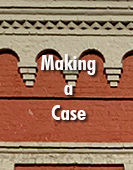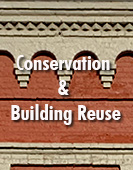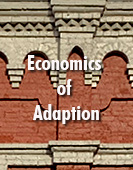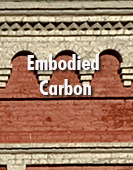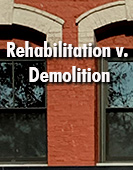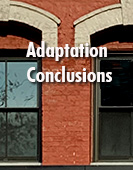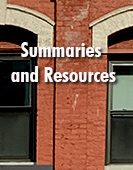- Heritage 101
- Advocacy
- Accessibility for Historic Places
- Climate & Sustainability
- Cultural Maps
- Heritage Place Conservation
- Heritage Policy & Legislation
- Homeowners
- Intangible Cultural Heritage
- Reconciliation
- Indigenous Cultural Heritage
- Setting the Bar: A Reconciliation Guide for Heritage
- 1. Heritage and Reconciliation Pledge
- 2. Acknowledging Land and People
- 3. Celebrating Days of Recognition and Commemoration
- 4. With a Commitment to Learn
- 5. Committing to Strategic Organizational Diversity
- 6. Mission-Making Room for Reconciliation
- 7. Possession, Interpretation, Repatriation and Cultural Care
- 8. Shared Decision Making
- 9. Statements of Significance and other heritage planning documents
- 10. Heritage Conservation Tools, Local Government Act
- Racism: Do Not Let the Forgetting Prevail
- Taking Action: resources for diversity and inclusion
- Webinars On-Demand
Climate Adaptation: About the Authors
Making a case to leverage existing and historic buildings for zero net carbon
MARK THOMPSON BRANDT, Senior Conservation Architect& Urbanist, OAA, RAIC, CAHP, FAPT-RP, LEED AP
Mark is sought after as a leading Heritage Architect/Urbanist in the National Capital Region, having led or co-led over a dozen Parliamentary Precinct heritage projects. Mark is a National Leader in Sustainable Rehabilitation, having co-authored Building Resilience: Practical Guidelines for the Sustainable Rehabilitation of Buildings in Canada, the national guidelines document, is currently Co-Chair of the North America-wide Zero Net Carbon Collaboration for Existing and Historic Buildings (ZNCC), and lectures widely on the link between, and the responsibility of, heritage conservation in the effort to reduce carbon emissions. Mark is a sustainability, heritage conservation and existing building specialist with expertise in value assessments, impact assessments and high-value reviews, evaluations for built heritage and cultural landscapes as well as constructing/adapting/intervening in existing structures. He is a stakeholder engagement specialist, with expertise in managing input and gaining consensus through dialogue and project management, including heritage evaluation and intervention reviews, FHBRO presentations and approvals.
EMILY GUY, Research Lead & Project Coordinator, BA (Canadian Studies), MA (History), MEd
Emily is a historian with a degree and graduate degrees in Canadian Studies, History and Education. Emily has experience in the private, public, and academic areas and has worked in different jurisdictions in Canada. At MTBA, she leads Research and Development projects, with a specific focus on Historic Places, Heritage Conservation Districts and Cultural Heritage Impact Statements. Emily’s Professional Development focusses on Heritage Planning courses, including Cultural Resource Management at the University of Victoria. She is a key Project Manager at MTBA and works closely with the Technical team on a variety of heritage conservation and research projects.
Catherine McBain, intern architect & heritage specialist, oaa, raic, apt
Catherine is an Intern Architect with a speciality in heritage conservation. Her interests include Modern Heritage, concrete conservation, heritage documentation, and designing for social impact. Catherine’s graduate thesis explored critical alternatives for the conservation of Canada’s former Indian Residential Schools. Her roles in projects include research, design, contributing to cultural heritage impact statements and heritage consideration reports. Catherine is actively part of MTBA research efforts for various projects and is currently working on a second edition of Building Resilience: Practical Guidelines for the Sustainable Rehabilitation of Buildings in Canada.
Melissa Lengies, research intern, b.arch, leed green associate
Melissa is an architectural researcher with a specialization in heritage conservation and sustainability. Currently working on her Master of Architecture, she has prior experience in both the public and private sectors providing heritage and design services in the National Capital Region and beyond. As a research intern with MTBA through the NSERC CREATE Heritage Engineering program, Melissa is interested in the impact of climate change on built heritage, as well as the role built heritage plays in climate action in various cultural contexts. She plays an active role in MTBA’s research and collaborative initiatives, and is working on the second edition of Building Resilience: Practical Guidelines for the Sustainable Rehabilitation of Buildings in Canada.

